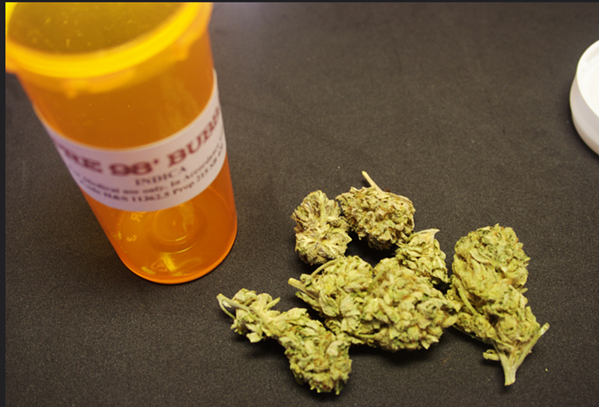You are here
Home 🌿 Medical Cannabis News 🌿 Plans to grow medical marijuana discussed in Louisiana House committee 🌿Plans to grow medical marijuana discussed in Louisiana House committee

The lucrative nature of marijuana sales was at the center of a House Committee on Agriculture, Forestry, Aquaculture, and Rural Development discussion today about a law that puts the state into the marijuana distribution business.
Louisiana State University and Southern University are the two schools that plan to grow marijuana at separate facilities for use as medical treatments authorized under legislation approved last spring that legalizes and regulates such distribution. LSU’s operation alone is estimated to cost between $10 million and $15 million, and lawmakers were warned it will take seven to eight years for the operation to become lucrative.
LSU Vice President for Agriculture and Dean of the College of Agriculture Bill Richardson said a contractor will be selected within the next three to four weeks.
The operation will provide 10 to 20 new jobs, he said, but that the number could grow as the research project grows. The marijuana itself will not be taxed because it is a pharmaceutical and currently exempt from sales tax.
The law requires the product, which cannot be shipped outside Louisiana, be grown indoors and away from LSU’s campus in an undisclosed, non-LSU operated building, a facility that Richardson predicted will be “one of the most secure facilities, probably, in the state of Louisiana.”
The law also prohibits LSU students or persons under 21 years old from working at the facility.
Richardson said the product will not be used “for just anything” — in other words, the marijuana will not be sold to be consumed for recreational purposes.
Richardson said if they can engineer the plants to produce none of the natural “high drug” compound, also known as THC, but rather high amounts of the compound responsible for the drug’s medical benefits (CBD), a child who suffers from seizures can have a safe and regulated medicine that mitigates those afflictions.
Richardson noted that in states where marijuana is legalized in some form, opioid use and beer sales have declined significantly.
State Rep. Bernard LeBas, D-Ville Platte, was a co-sponsor on the original medical marijuana bill. He said the program could benefit “a lot of people who are suffering. We have a lot of drugs on the market derived from plants already.”
Marijuana remains illegal under federal law, creating obstacles for acquiring the materials to grow the product in the first place. But Richardson said he hopes to have a product on the pharmacy shelves before the end of 2018. The contract sunsets in 2020.
420 Intel is Your Source for Marijuana News
420 Intel Canada is your leading news source for the Canadian cannabis industry. Get the latest updates on Canadian cannabis stocks and developments on how Canada continues to be a major player in the worldwide recreational and medical cannabis industry.
420 Intel Canada is the Canadian Industry news outlet that will keep you updated on how these Canadian developments in recreational and medical marijuana will impact the country and the world. Our commitment is to bring you the most important cannabis news stories from across Canada every day of the week.
Marijuana industry news is a constant endeavor with new developments each day. For marijuana news across the True North, 420 Intel Canada promises to bring you quality, Canadian, cannabis industry news.
You can get 420 Intel news delivered directly to your inbox by signing up for our daily marijuana news, ensuring you’re always kept up to date on the ever-changing cannabis industry. To stay even better informed about marijuana legalization news follow us on Twitter, Facebook and LinkedIn.




